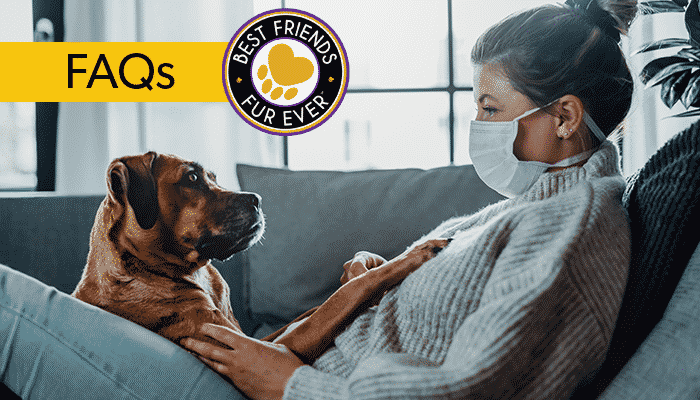Coronaviruses are a large family of viruses. Some cause illness in people and others cause illness in certain types of animals. Some coronaviruses that infect animals can sometimes be spread to people, but this is rare.
We do not know the exact source of the current outbreak of COVID-19, but the first infections were thought to be linked to a live animal market and the virus is now primarily spreading from person to person.
At this time, there is no evidence that animals play a significant role in spreading the virus that causes COVID-19 and the risk to people is considered to be low. COVID-19 is spread through human-to-human transmission.
Although we know certain bacteria and fungi can be carried on fur and hair, there is no evidence that viruses, including the virus that causes COVID-19, can spread to people from the skin, fur, or hair of pets. However, since animals can spread other diseases to people, it’s always a good idea to practice healthy habits around pets and other animals, such as washing your hands and maintaining good hygiene.
Pets have other types of coronaviruses that can make them sick, like canine and feline coronaviruses. These other coronaviruses cannot infect people and are not related to the current COVID-19 outbreak.
Treat pets as you would other human family members and isolate that person from everyone else in the home, including pets. When possible, have another member of your household or a professional overnight boarding service care for your animals while you are sick. If you are sick with COVID-19, avoid contact with your pet, including petting, snuggling, kissing or licking & sharing food or bedding. If you must care for your pet or be around animals while you are sick, wash your hands before and after you interact with pets and wear a cloth face covering.
The most important thing to know about coronavirus on surfaces is that they can easily be cleaned with common household disinfectants that will kill the virus. Studies have shown that the COVID-19 virus can survive for up to 72 hours on plastic and stainless steel, less than 4 hours on copper and less than 24 hours on cardboard.
As, always clean your hands with an alcohol-based hand rub or wash them with soap and water. Avoid touching your eyes, mouth, or nose.
- Stay aware of the latest information on the COVID-19 outbreak, available on the WHO website and through your national and local public health authority. Most countries around the world have seen cases of COVID-19 and many are experiencing outbreaks. Authorities in China and some other countries have succeeded in slowing their outbreaks. However, the situation is unpredictable so check regularly for the latest news.
- Regularly and thoroughly clean your hands with an alcohol-based hand rub or wash them with soap and water. Why? Washing your hands with soap and water or using alcohol-based hand rub kills viruses that may be on your hands.
- Maintain at least 6 feet distance between yourself and others. Why? When someone coughs, sneezes, or speaks they spray small liquid droplets from their nose or mouth which may contain virus. If you are too close, you can breathe in the droplets, including the COVID-19 virus if the person has the disease.
- Avoid going to crowded places. Why? Where people come together in crowds, you are more likely to come into close contact with someone that has COIVD-19 and it is more difficult to maintain physical distance of 6 feet.
- Avoid touching eyes, nose and mouth. Why? Hands touch many surfaces and can pick up viruses. Once contaminated, hands can transfer the virus to your eyes, nose or mouth. From there, the virus can enter your body and infect you.
- Make sure you, and the people around you, follow good respiratory hygiene. This means covering your mouth and nose with your bent elbow or tissue when you cough or sneeze. Then dispose of the used tissue immediately and wash your hands. Why? Droplets spread virus. By following good respiratory hygiene, you protect the people around you from viruses such as cold, flu and COVID-19.
- Stay home and self-isolate even with minor symptoms such as cough, headache, mild fever, until you recover. Have someone bring you supplies. If you need to leave your house, wear a mask to avoid infecting others. Why? Avoiding contact with others will protect them from possible COVID-19 and other viruses.
- If you have a fever, cough and difficulty breathing, seek medical attention, but call by telephone in advance if possible and follow the directions of your local health authority. Why? National and local authorities will have the most up to date information on the situation in your area. Calling in advance will allow your health care provider to quickly direct you to the right health facility. This will also protect you and help prevent spread of viruses and other infections.
- Keep up to date on the latest information from trusted sources, such as your local and national health authorities. Why? Local and national authorities are best placed to advise on what people in your area should be doing to protect themselves.

